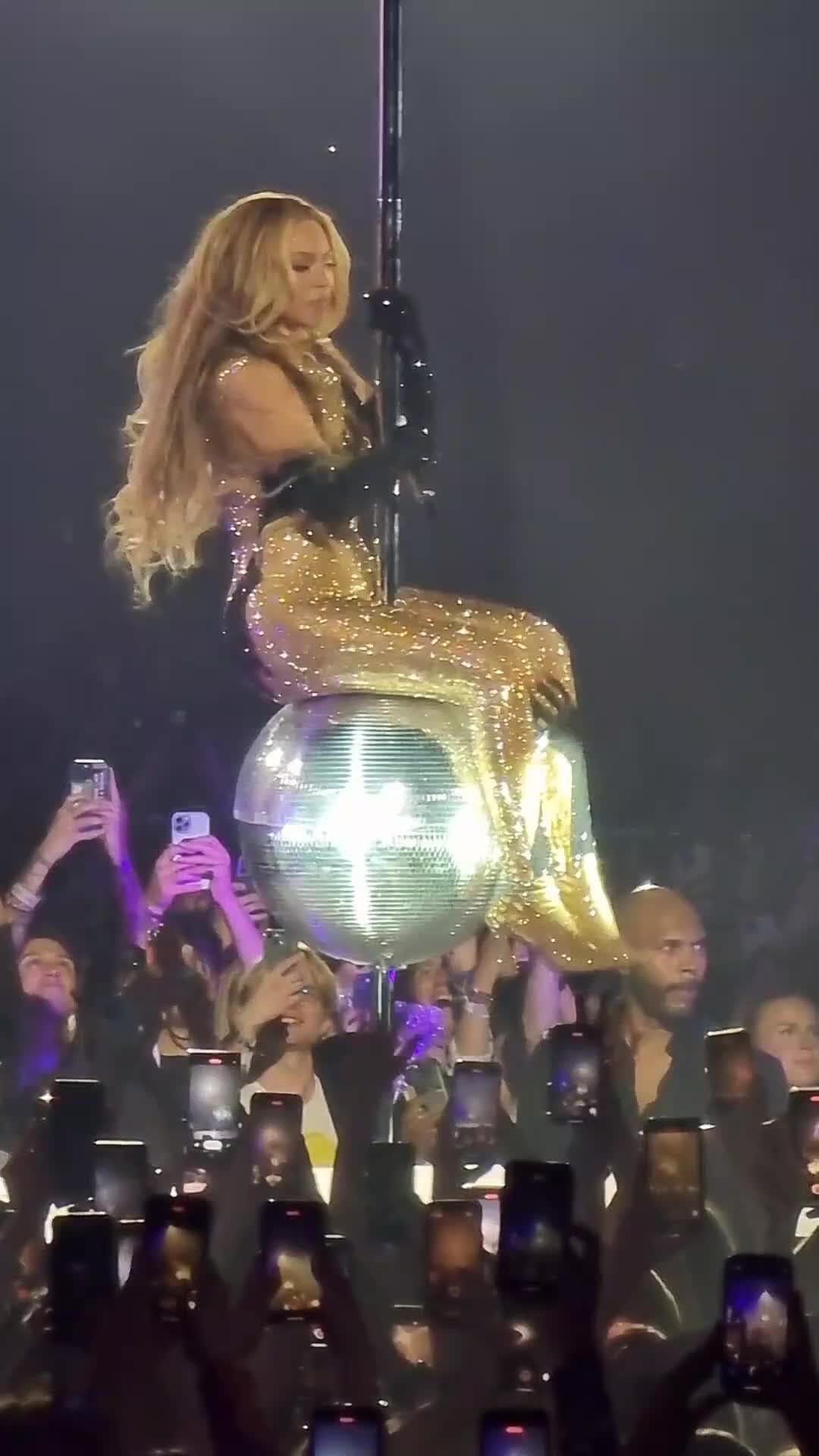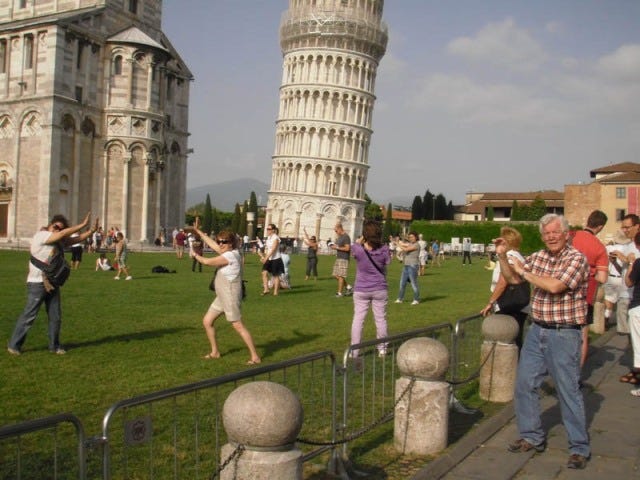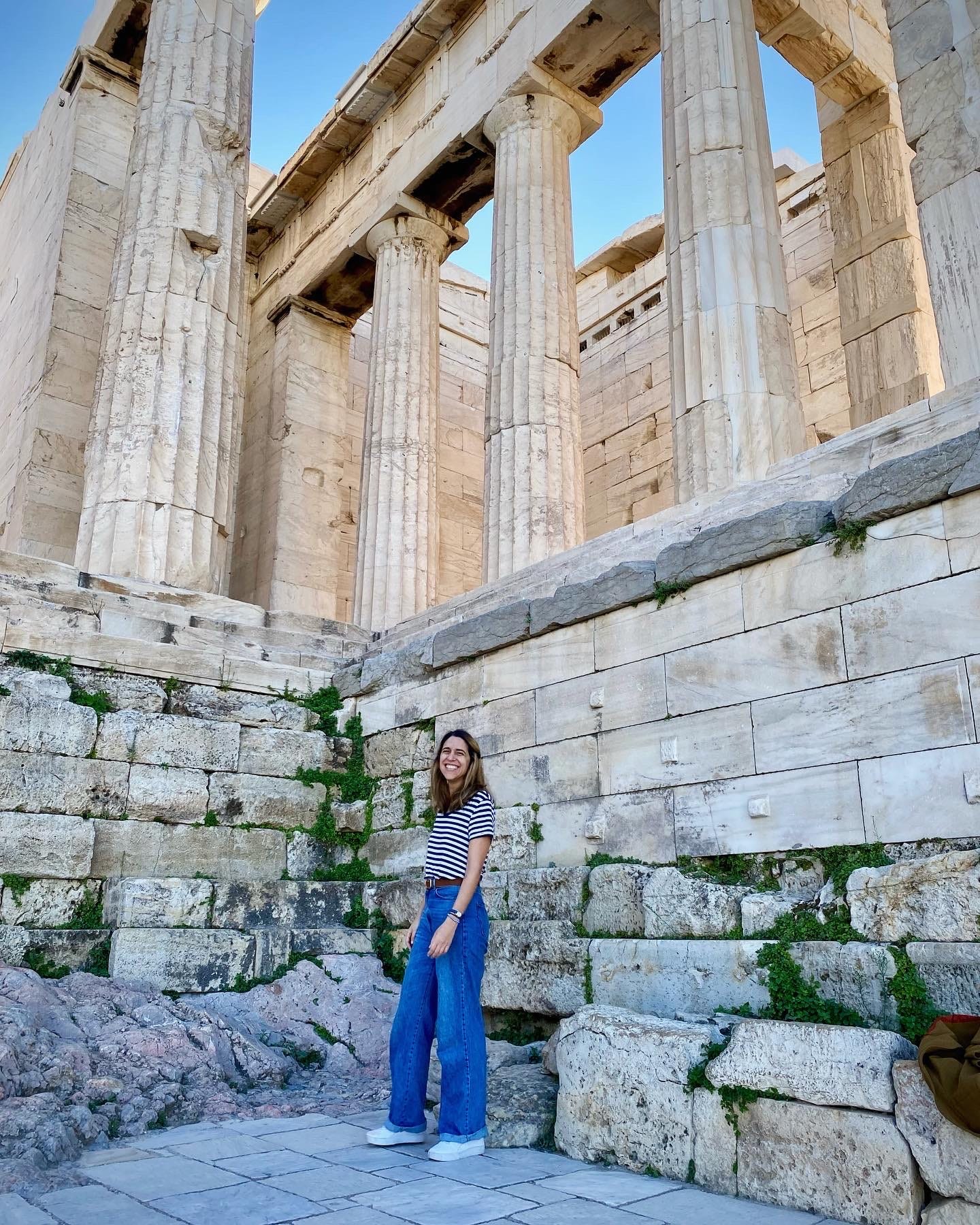Why remembering analog times can help us live sanely in the digital
How I ditched my Instagram addiction
Imagine this: You pay 200 euros to watch Beyoncé live. You leave your cozy home, take a train, eat whatever you find, pay for expensive beers, and are shoved around by people, only to have an ocean of screens in front of you for the whole three hours, unable to see much beyond them.
From the photos and videos I have seen on social media from her current tour, that is the general experience. It made me cringe. Apparently, now, when in a concert, you either watch it through your own screen or one of the thousands in front of you. Honestly, I prefer being home over that.
I then came across this video from one of my favorite YouTube channels, The Take, exploring how concertgoing has changed. It's far more tragic than I thought.
I attended my fair share of concerts. It was a lot of fun. Many of them were before smartphones, but even when they were already there, I remember only one show where I was genuinely upset about people filming in front of me. So much so that I actually complained to the person. It was a Rolling Stones concert, celebrating the band's 50 years in São Paulo in 2016. Even Mike Jagger commented about how intensely people filmed the whole concert in an interview afterward.
Usually, most people (myself included) would pop their phone during one or two parts of the set, record it in a video for 30 seconds, and put it back in their pockets. And honestly, I even regret doing that. I feel that it still takes away from the moment. After all, not once in my life have I rewatched these snippets from the shows I have seen over the years that followed. Because after all, filming is not really about preserving this memory; it is about posting on social media and showing (bragging) that you were there.
Social media is addicting.
We've all known that for a while. I'm not saying anything original here. Many articles, videos, and documentaries have explained how our brains were hijacked by psychological tricks. And just like a pigeon, uncertain if we are getting a reward or not, we click ourselves into oblivion.
But our addiction is not only clicking on apps and scrolling mindlessly for hours on end. Much more damaging, in my view, is how it affects the non-virtual world. How we change our behaviors outside to feed into an online persona. This is something I recognized in myself, especially on Instagram, which compelled me to eventually stop using it.
And as I saw these social media posts of Beyoncé's crowd with an ocean of screens and watched The Take's video, I recognized it for what it is. The crowds filmed to prove they were there. As if it wasn't posted, it didn't happen. And the pull to show and prove is strong, I know.
People are not even filming the concert anymore, but only themselves throughout the whole thing. How can you truly experience something if you constantly think about others watching you?
And for what? It will be in your feed the next day with a few (or thousands, who cares?) likes, and that's it. You'll never have that moment back. You will never be at that same concert at that same age.
In my own experience, that was what finally turned me off of Instagram. When I started noticing that I wasn't doing things to enjoy them anymore, I was doing them to take photos or videos and put them on Instagram.
And I know most people do the same thing. That's why vacations to famous Instagram spots are on the rise. The sudden influx of people who all want the same picture is destroying protected areas or national parks. It's like we don't care about the experience (or even the place), we want the photo.
Our online personas replace our real ones. Dictating where we need to spend time, what we should wear, how we should look, and what we should enjoy.
Honestly, it seems to be getting worse with TikTok. Maybe simply because of the platform rhythm. With short videos in a constant stream, people feel pushed to produce many videos per day. TikTok makes people's days revolve around what can be filmed. It's insane. I know there are people earning money on this platform. However, how unhealthy is it to live to feed the algorithms instead of living for themselves?
Perhaps I'm an old millennial not getting young kids and ranting on Substack. But the thing is, I recognize myself in that. And what worries me the most is that the only thing that got me to finally rethink my approach to it and finally get out of Instagram was thinking back to when our relationship to photos and videos was completely different. When everything was analog and it could be years between taking a photo and viewing it. A long-forgotten photo roll could be found in a drawer somewhere in your house, years later. It was the only record of a birthday party or vacation.
Young adults and adolescents have never had much contact with analog photos and videos or the whole experience. I fear they can't see how crazy we are all acting without something to compare ourselves to.
How I had to remember analogical times to stop using Instagram
So, OK. My family is very adventurous. When I was a teenager and before smartphones, I had already traveled to many countries. We would take photos, of course, and when we returned, we would take them to be developed and place them in an album.
When we returned from a trip—perhaps if there were family and friends visiting and they brought out the travel subject—my mom would offer to let them see the photos. A few guests would flip through the photo album; they would ask about some of the photos and talk a bit about the vacation, and that's it. When digital cameras first appeared, this stopped being a thing. Only if the pictures were printed. No one would take a party guest to a computer to show their vacation photos. Videos were even more intrusive.
At that time, it was even a common gag in movies and TV shows—the annoying person who brought slide shows of their vacation to parties.
Cut back to Instagram, and we share our vacation photos and more with a girl we met once at a job conference. We also share them with a former teacher and a friend from school that we have lost touch with. Those people don't care at all about our vacations. I started thinking, "Would I, in real life, show my photo album to this person?"
This left me questioning each photo I posted: "Who would really enjoy seeing this?” Because there are indeed people who want to see a picture of me hugging my cat, but maybe it's five of the people who are following me. Why not send the photo directly to them?
Which then led me to reconsider my whole approach to the little camera app. Why am I posting this? What do I want from it? What image of myself do I want to project?
I quit Instagram after a while of this exercise, of course, still with a few slips now and then. I especially struggled when traveling. I would send the photos via WhatsApp to my parents, who always appreciate them, and maybe a few friends. But the urge to post is always there, and sometimes it even brings me back to the app, like last October when I traveled to Greece.
And I have to be honest. Even though I consider myself to have beaten my Instagram addiction, somehow I have also moved my habits from social media to social media. From Facebook to Instagram to Twitter, LinkedIn, and even Notes. As I use those last three for work, I can claim they are all necessary. This claim gives me a place to hide and not deal with it. However, I am much more conscious of what I post, when, and why.
I just didn't want my brain to jump straight to posting it while I'm experiencing something. For instance, I always dreamed of having a stand-up paddle. While I didn't pick it up, it even came with a transparent plastic bag, perfect for storing your phone. One of the first things I thought about after my first ride was: I should make a video of me paddling so people can see what I see and how cool it is here where I'm paddling. And honestly, I just don't want it to control my head like that. I don't want to create things or have experiences to post. It wasn't meant to be the most significant part of the experience.
Whatever you're hoping to get from posting, you will not get it from doing so. Most people agree with this statement. But this hope is why we keep sharing and posting. It creates this cycle of needing to share more to get that dopamine rush and feel liked and appreciated. We are setting ourselves up for failure if we don't interrupt this cycle within ourselves.
Before rethinking my habits with Instagram, I felt the moments were swallowed up by the necessity to document the present.
I know there are people who feel the same; they just haven't realized it yet. Or maybe they never thought of how crazy it is, now that we are so embedded in this culture, to show everything in your life to random people on the internet. To show them your vacation album.
I think we would appreciate a concert and all of our experiences much more if we all kept our phones in our pockets. If you do so, you are also letting others appreciate the show with you. And social media would be a safer and kinder place if everyone asked themselves before posting: For whom is this post intended? Why am I posting this? What image of myself do I want to project?
Just a thought. Try it out.
100 things we've Lost to the Internet by Pamela Paul
Pamela Paul makes an extensive list of things we have lost to the internet. From boredom to voicemails and getting lost. The book is not anti-digital; it is just an exercise to reflect on how much our lives have changed in the last 30–40 years. Although we have gained a lot, it's interesting to look back to understand and get new insights into how we can improve our lives in the present.
Sweat (2020)
Sweat portrays the life of Sylwia, a driven young Polish “fitness motivator” with some 600,000 followers online. It shows just how closely social media addiction is linked to loneliness and objectification. It's an interesting movie, and the loneliness is almost palpable in it.
I also watched A Simple Favor because I thought it fit the topic, but oh my, what a trainwreck of a movie.
Lately, I have been rewatching Malcolm in the Middle. I know everyone has a biased view of the decade they grew up in, but wasn't this period great? I certainly didn't have a similar life as a boy growing up in the US. However, there is so much in the show that brings me back. Especially the slow pace, boredom, and creativity in finding things to do. This was most often destructive and chaotic in the case of Malcolm and his brothers. Better for us to laugh along.













I enjoyed this and I agree with you. We really do not need to post everything for people we mostly don't know.
I wonder if the urge to document being there has been around for a long time. When I toured Mammoth Cave in Kentucky (world’s longest cave system), at one point we entered a large chamber and the guide pointed out all the marks on the ceiling. Apparently since the very beginning of this cave as a tourist attraction, people would hoist someone up with a candle. Holding the candle just below the ceiling left a sooty mark. Thus it could be used as a very slow writing implement. I saw dozens of sooty names and dates going back to the early 1800s. That sounds a lot like the selfie impulse.
Bryan Cranston as Hal in Malcolm: he’s had some good roles over the years, hasn’t he? From a recurring role as Tim Whatley the dentist in Seinfeld to Walter White in Breaking Bad.